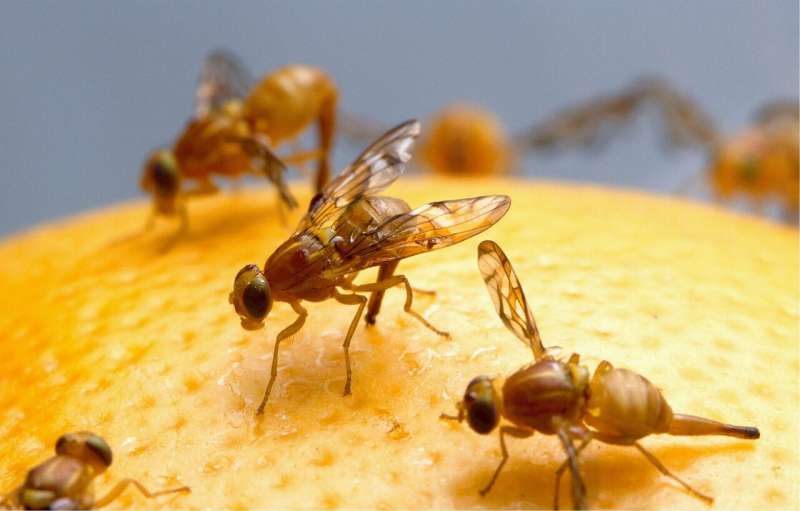Fruit fly study unlocks insights into human mating rituals

A new study from Western identifies a specific gene in fruit flies that drives female mate acceptance and rejection—a vital discovery for understanding how all species, including humans, survive and thrive on Earth.
Identifying fruitless as a gene affecting female receptivity to potential mates also further explains the reproductive barriers between species, as mate rejection is also critical for preventing cross-species mating, a process called 'reproductive isolation."
The study, The fruitless gene affects female receptivity and species isolation, was published in Proceedings of the Royal Society B: Biological Sciences.
"What we have found is that the fruitless gene not only controls how a female selects or rejects a mate from her own species, but how she declines reproductive advances from other species, too," explained Biology professor Amanda Moehring, Canada Research Chair in Functional Genomics.
Behaviour, in humans and other species like fruit flies, is regulated—and measured—by factors like consciousness, social norms, and other environmental influences.
This study, however, further illustrates that all actions are initiated in biological genes as they determine the neural connections in the brain. These behaviours include communication, response to stress, and mate selection or rejection—the foundational aspects of what a species is and how it functions.
As part of the study, Moehring and her research team—Tabashir Chowdhury, Ryan Calhoun and Katrina Bruch—also showed that behaviours of mate selection can be modified at the genetic level to produce entirely unexpected results.
"The fruit fly model that we have created is an important first step in understanding the role genes play in sexual behaviour and development," said Chowdhury, a postdoctoral scholar and first author of the study. "Moving forward, we hope to clarify the roles these genes play and figure out how similar genes could be involved in the infinitely more complex human behavioural system."
More information: Tabashir Chowdhury et al. The fruitless gene affects female receptivity and species isolation, Proceedings of the Royal Society B: Biological Sciences (2020). DOI: 10.1098/rspb.2019.2765
Journal information: Proceedings of the Royal Society B
Provided by University of Western Ontario




















